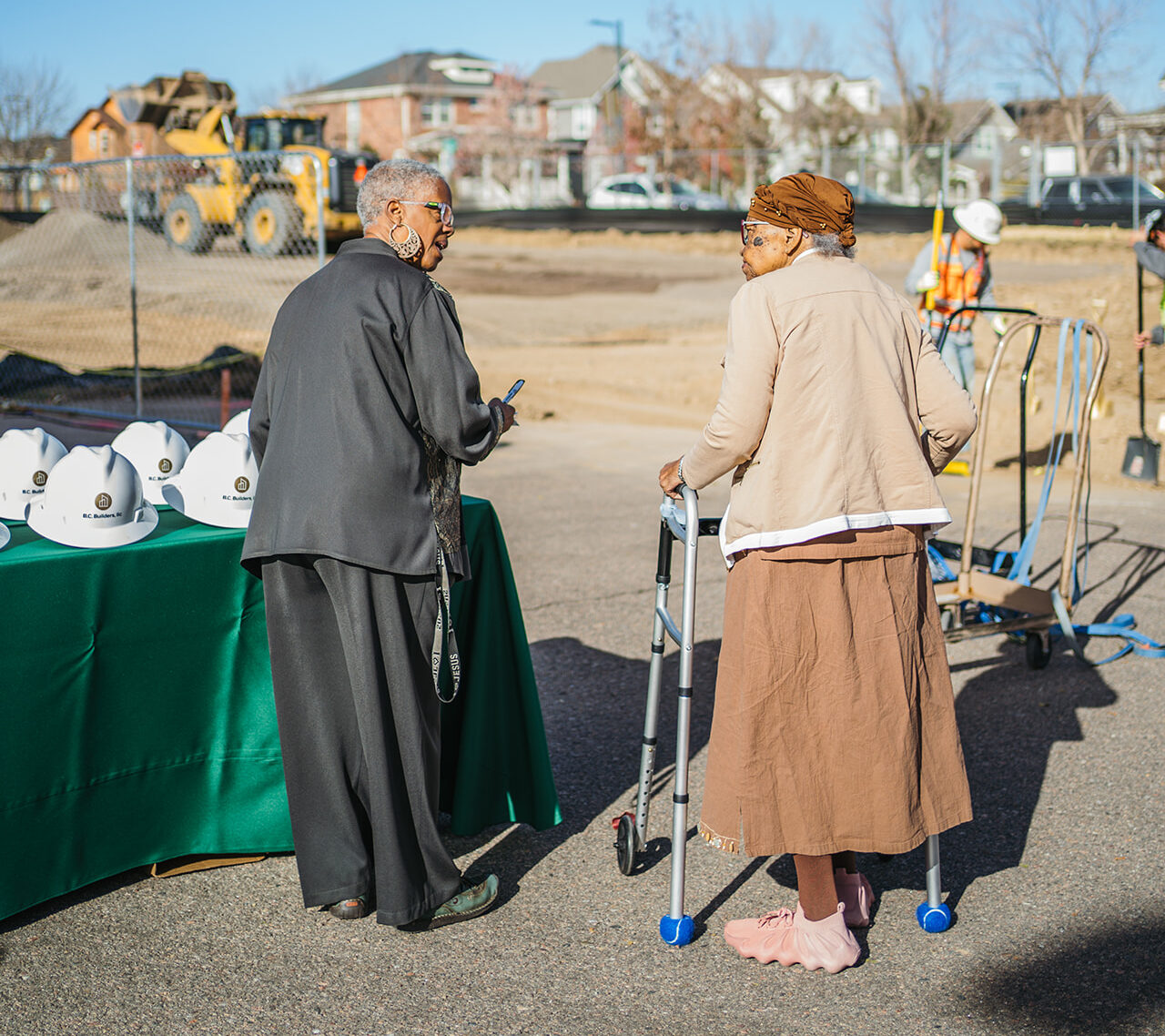By Danielle Vachon Bell, Development Director at MGL Partners

We’ve reached that time of year again when experts are weighing in on the trends that will come to shape our commercial real estate landscape. Amid all the talk about the future of office, which sub-markets will boom, and who’s in for a tough year, the looming crisis for one particularly vulnerable segment of the multifamily market has yet to be met with a strong sense of collective urgency.
In 2025, the first Baby Boomers will turn 80, with an estimated 65-70 million people reaching the age of 80 in the next decade in the U.S. To house this aging population, we will need an estimated 549,000 additional units by 2028, and 806,000 additional units by 2030. Here in Colorado, our older adult population is expected to balloon by 70 percent over the next two decades, and while there is general awareness among real estate professionals that the Silver Wave is coming, the reality is that Colorado has not kept pace with new units, and market conditions over the last three years have led to a lower number of starts than we need to begin making a dent in present need – let alone future demand.
While this picture isn’t exactly rosy, there are some exciting bright spots related to unconventional collaborations that are taking place in our market to produce older adult housing. Through our multifamily specialization, MGL Partners has been involved in a variety of diverse collaborations that offer replicable examples to address the increasing demand for housing for this growing population segment.
Public-Private Partnerships: Bridging the Gap
The sheer scale of need for this kind of housing requires innovative funding models. By aligning the resources of the public sector with the nimbleness and expertise of private developers, we more effectively leverage resources, expedite construction and cater to a broader spectrum of older adult needs and affordability considerations.
Beyond levers like tax credits, public-private collaboration can take a variety of more creative forms. Municipalities looking to expedite the development of older adult housing might look at parking reform, for example. With fewer residents of these communities driving, municipalities could proactively make changes to their code allowing for parking reductions for affordable older adult housing, especially near transit. This would allow parking reductions to be approved administratively versus requiring the development team to go through a public hearing process, which creates uncertainty in the site planning process and ultimately can add a significant amount of time and cost to the front end of a project. Partnering with RTD to build on their land or leverage a small percentage of their existing parking at TOD nodes could further lower costs, incentivize construction and offer convenient access.
While it’s a simple change, the reality is that developers looking to add more older adult housing are going to look for municipalities that have more favorable parking reductions versus those that make the process long and subjective.
Developers and Community Champions: Collaborating for Social Impact
Churches, synagogues and related religious organizations own a reported 5,000+ acres of undeveloped land in the five metro counties surrounding Denver, not including Broomfield or Boulder. This land represents a massive opportunity for collaboration towards the greater good. Joining forces with seasoned developers unlocks the potential of this land for the benefit of our aging population.
MGL took this approach with the new St. Stephen Senior Apartments, which broke ground in November 2023 in Denver’s Central Park neighborhood. This new 50-unit affordable older adult housing community was made possible through a unique partnership between MGL and St. Stephen Missionary Baptist Church, which owns the land and will provide a 65-year, low-cost land lease. This partnership allowed us to address the critical shortage of affordable housing for economically vulnerable residents in this high-cost barrier neighborhood while aligning with the church’s goal of a legacy project in the community.
The arrangement additionally provides a stable funding stream to the historically African American church, allowing them to continue their mission for decades to come. When the new community opens, the church will maintain a connection, providing services to residents such as food bank and van transit to local amenities.
With so much undeveloped, church-owned land in Colorado, there’s ample opportunity to replicate this approach in other neighborhoods.
Reclaiming the Urban Fabric
As office tenants continue to flock to quality, there’s an opportunity for revitalizing the land that currently houses obsolete office stock. Infill projects that reimagine the land, either through demolition and redevelopment or innovative adaptive reuse, offer a sustainable solution for older adult housing. MGL Partners is working on one such project right now that would repurpose an outdated office building with 50 new affordable housing units for older adults in a largely residential neighborhood. Surrounded by single-family homes, this is an ideal location for housing aging parents and grandparents.
With roughly 10 percent of Denver’s office space potentially falling into the “functionally obsolete” category, there’s both an opportunity and a need to find new uses for either the buildings or the land they occupy. Our team is keeping a close eye on these opportunities for natural infill and anticipates making additional moves toward this end in 2024.
Our market fundamentals here in Colorado remain strong, and our prospects are bright, but for thousands of seniors, the future is not guaranteed. Can we, as a development community, as municipalities and as a state, bridge the gap between aspiration and reality? Can we provide thoughtfully designed, affordable housing options that will allow our parents and grandparents, neighbors and friends to age with dignity? The answer is clear: we must.









